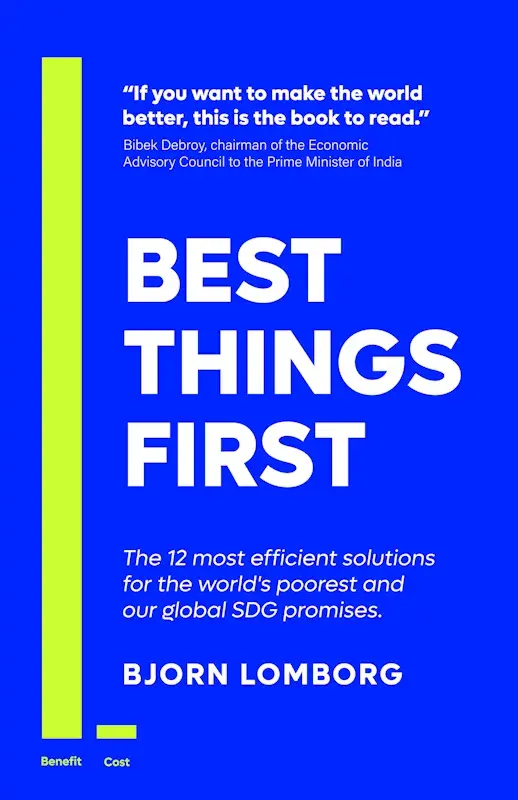Best Things First
World leaders have promised everything to everyone. But they are failing. The UN’s Sustainable Development Goals are supposed to be delivered by 2030. The goals literally promise everything, like eradicating poverty, hunger and disease; stopping war and climate change, ending corruption, fixing education along with countless other promises. This year, the world is at halftime for its promises, but nowhere near halfway. Together with more than a hundred of the world’s top economists, best-selling author, Bjorn Lomborg, has worked for years to identify the world’s best solutions.
Based on 12 new, peer-reviewed studies, forthcoming in Cambridge University Press’ Journal of Benefit-Cost Analysis, his new book highlights how to make the world a better place in the best possible way.
“Some things are difficult to fix, cost a lot, and help little. Other problems we know how to fix, at low cost, with remarkable outcomes. We should do the smart things first,” says Bjorn Lomborg.
Governments and philanthropists should focus on the 12 smartest things. Fix tuberculosis, malaria, and chronic disease, tackle malnutrition, improve education, increase trade, implement e-procurement, and secure land tenure. This will, at a low cost, improve the world amazingly.
“The cost is $35 billion a year. Spent on the 12 best solutions it could make the world’s poor incredibly much better off.
The benefits include saving 4.2 million lives each year and generating $1.1 trillion more for the world’s poor,” highlights Bjorn Lomborg.
We can definitely afford it: The cost of $35 billion is equivalent to the increase in annual global spending on cosmetics over the last two years.
The benefits will be amazing for the world’s 4 billion poorest. The policies will avoid every seventh death while making everyone 11% richer. Each dollar spent will deliver $52 of global benefits. This is likely the best thing the world can do this decade.
As an Amazon Associate Copenhagen Consensus earns from qualifying purchases if you use the book links on this page.
Published: 2023
Publisher: Copenhagen Consensus Center

